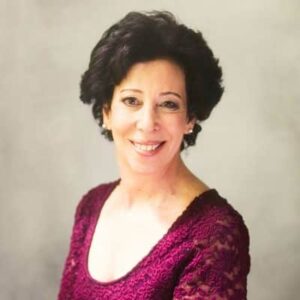Featured
Hormones and Hair Loss: How to Manage and Reverse It
Do you see more hair in your brush than usual? You’re not the only one. Millions of people lose their hair, but women and men are more affected by changing hormones. If you learn about the science behind hormones and hair loss, you can take real actions to deal with and even reverse this difficult problem.
The Science: How Hormones Affect Your Hair
Which hormone causes hair loss in females?
Hormones are chemicals that send messages to the body and affect many of its processes, such as the growth cycle and strength of your hair follicles. The most common causes of hair loss are:
- Androgens (DHEA, DHT and testosterone): Androgenetic alopecia, which is hair loss along the temples and top of the head, also known as male or female pattern hair loss, is intimately linked to an excess of androgens, particularly dihydrotestosterone (DHT). DHT makes hair follicles smaller, cuts short the growth period (anagen) and causes hair to thin or fall out.
- Estrogen: Estrogen helps hair stay in the growth phase longer. You might notice that your hair falls out more and grows back less during menopause or after giving birth. 1
- Thyroid hormones: Telogen effluvium, hair loss all over the head, is a type of hair loss that can happen when you have either hypothyroidism or hyperthyroidism. Finding and treating thyroid problems that are causing hair problems often makes hair healthier. 2
- Stress hormones: High levels of cortisol and other stress hormones can directly impact the stem cells in hair follicles, putting hair into a resting phase and triggering stress-related hair loss. news.harvard.3
How to Deal with and Stop Hormonal Hair Loss
The good news? Science backs up your choices. The greatest way to do things is with a multi-faceted approach:
Testing for medical and functional reasons
A full evaluation, which includes blood tests for hormone levels (androgens, estrogen, thyroid, and stress hormones), helps find the main reason. This makes it possible to give tailored, effective treatment. 4
Hormone therapy and medications
Topical Minoxidil is the only FDA-approved medicine for female pattern hair loss that is put directly on the scalp. It makes follicles work better and can help hair come back, but you have to apply it all the time. However, many compounding pharmacies can make a solution of a combination of dutasteride and finasteride that may be more effective. Dutasteride has shown superior efficacy both in blocking DHT and promoting hair growth compared to finasteride. 5
Finasteride, dutasteride and spironolactone are oral medications that suppress the effects of DHT. They are sometimes given to men and women (with caution during pregnancy). 6
Hormone Replacement Therapy (HRT): This is used to treat hair loss that happens after menopause or after giving birth.
New ways to treat things
The American Academy of Dermatology has recommended some effective treatments such as:
- Platelet-Rich Plasma (PRP): PRP uses the plasma from your own blood to make hair follicles grow and thicken. There is clinical evidence that it is safe and works, especially when used with other treatments.
- Microneedling uses tiny needles to speed up healing on the scalp and increase collagen. It can be done with PRP or prescription topicals for even better results.
- Laser Therapy: Low-level laser treatments may help with hair loss caused by genetics or stress. You need to go to more than one session.
Changes to Your Daily Life
Iron, vitamin D, protein, biotin, and omega-3 fatty acids are good for your hair. Make changes to your diet to fix any deficiencies, or take supplements, if necessary, after talking to your doctor.
- Gentle Hair Care: Don’t use harsh products or heat style. Choose loose hairstyles and shampoos that don’t have sulfates in them.
- Stress Relief: Mindfulness, yoga, meditation, and regular exercise have all been shown to lower hormone imbalances caused by stress and help keep hair healthy.
Is female pattern hair loss the same as hormonal hair loss caused by menopause?
They’re related, but not exactly the same. Here’s the breakdown:
Female Pattern Hair Loss (FPHL) is the most common type of hair loss in women, also called androgenetic alopecia. It’s largely driven by genetics and sensitivity of hair follicles to androgens (male hormones present in both men and women) and presents as hair thinning on the crown and part line, while the frontal hairline is often preserved. FPHL can start anytime after puberty, but typically increases with age.
Hormonal Hair Loss from Menopause can be explained by the drop in estrogen and progesterone that happens in menopause. This drop is in contrast to the androgen activity that remains about the same, so these hormones (like testosterone and DHT) become more influential. With regards to estrogen, it helps keep hair in the growth (anagen) phase longer, so when it declines, hair cycles shorten, leading to shedding and thinning. This hormonal shift can trigger or accelerate female pattern hair loss in genetically predisposed women. Some women who never noticed hair thinning before menopause start to experience it during this time.
So, FPHL and menopause-related hair loss overlap. Menopause doesn’t cause FPHL outright, but hormonal changes can unmask or worsen it. In other women, hair thinning may be more diffuse and not follow the classic “pattern” because it’s more directly tied to estrogen decline rather than strong androgen sensitivity.
The Bottom Line: Don’t Accept Hair Loss
Not only can hair loss change how you look, it also affects your health and confidence. With the appropriate method, which is based on research and customized medication, you can get your healthiest hair back. Don’t wait for your symptoms to get worse!
You may now fix hormone imbalances, stop hair loss, and bring your hair back to life with scientific research. Many of these solutions are minimally invasive and involve changes to your lifestyle that are unique to you.
Are you ready for Clarity? Make the First Move
If you’re losing hair and think hormones might be to blame, we encourage you to apply for a free clarification call. We’ll look at your specific circumstance together and help you figure out if our functional medicine approach is the best way to meet your needs. Take back control and start yourjourney to thicker, healthier hair the natural way.
Apply now for your clarity call to see if we are a good fit to get your hormones in balance, and let’s get your hair looking its best!
References:
- Gupta AK, Economopoulos V, Mann A, Wang T, Mirmirani P. Menopause and hair loss in women: Exploring the hormonal transition. Maturitas. 2025;198:108378. doi:10.1016/j.maturitas.2025.108378
- Popa A, Carsote M, Cretoiu D, Dumitrascu MC, Nistor CE, Sandru F. Study of the Thyroid Profile of Patients with Alopecia. J Clin Med. 2023;12(3):1115. doi:10.3390/jcm12031115
- Choi S, Zhang B, Ma S, et al. Corticosterone inhibits GAS6 to govern hair follicle stem-cell quiescence. Nature. 2021;592(7854):428-432. doi:10.1038/s41586-021-03417-2
- Brough KR, Torgerson RR. Hormonal therapy in female pattern hair loss. Int J Womens Dermatol. 2017;3(1):53-57. doi:10.1016/j.ijwd.2017.01.001
- Olsen EA, Hordinsky M, Whiting D, et al. The importance of dual 5alpha-reductase inhibition in the treatment of male pattern hair loss: results of a randomized placebo-controlled study of dutasteride versus finasteride. J Am Acad Dermatol. 2006;55(6):1014-1023. doi:10.1016/j.jaad.2006.05.007
- Nestor MS, Ablon G, Gade A, Han H, Fischer DL. Treatment options for androgenetic alopecia: Efficacy, side effects, compliance, financial considerations, and ethics. J Cosmet Dermatol. 2021;20(12):3759-3781. doi:10.1111/jocd.14537
QUICK LINKS
Hormone Health Course | Food Sensitivity Testing | Stress Management | Is HRT Right For You?
 Lorraine Maita, MD, CEO & Founder of The Feel Good Again Institute and Vibrance for life and widely known as “The Hormone Harmonizer”, has helped thousands of people ditch fatigue, brain fog, mood swings, lose weight, and achieve balanced hormones so they Feel Good Again.
Lorraine Maita, MD, CEO & Founder of The Feel Good Again Institute and Vibrance for life and widely known as “The Hormone Harmonizer”, has helped thousands of people ditch fatigue, brain fog, mood swings, lose weight, and achieve balanced hormones so they Feel Good Again.
She is a recognized and award-winning triple board certified, holistic, functional, integrative and anti-aging physician, speaker and author, and has been featured in ABC News, Forbes, WOR Radio and many media outlets to spread the word that you can live younger and healthier at any age.




